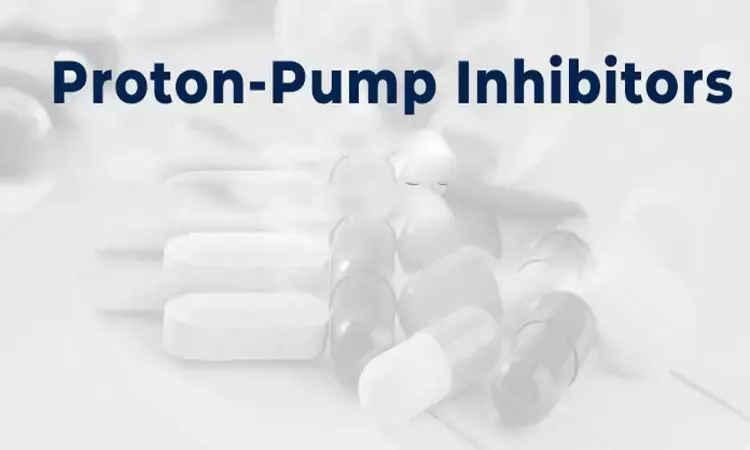- Home
- Medical news & Guidelines
- Anesthesiology
- Cardiology and CTVS
- Critical Care
- Dentistry
- Dermatology
- Diabetes and Endocrinology
- ENT
- Gastroenterology
- Medicine
- Nephrology
- Neurology
- Obstretics-Gynaecology
- Oncology
- Ophthalmology
- Orthopaedics
- Pediatrics-Neonatology
- Psychiatry
- Pulmonology
- Radiology
- Surgery
- Urology
- Laboratory Medicine
- Diet
- Nursing
- Paramedical
- Physiotherapy
- Health news
- Fact Check
- Bone Health Fact Check
- Brain Health Fact Check
- Cancer Related Fact Check
- Child Care Fact Check
- Dental and oral health fact check
- Diabetes and metabolic health fact check
- Diet and Nutrition Fact Check
- Eye and ENT Care Fact Check
- Fitness fact check
- Gut health fact check
- Heart health fact check
- Kidney health fact check
- Medical education fact check
- Men's health fact check
- Respiratory fact check
- Skin and hair care fact check
- Vaccine and Immunization fact check
- Women's health fact check
- AYUSH
- State News
- Andaman and Nicobar Islands
- Andhra Pradesh
- Arunachal Pradesh
- Assam
- Bihar
- Chandigarh
- Chattisgarh
- Dadra and Nagar Haveli
- Daman and Diu
- Delhi
- Goa
- Gujarat
- Haryana
- Himachal Pradesh
- Jammu & Kashmir
- Jharkhand
- Karnataka
- Kerala
- Ladakh
- Lakshadweep
- Madhya Pradesh
- Maharashtra
- Manipur
- Meghalaya
- Mizoram
- Nagaland
- Odisha
- Puducherry
- Punjab
- Rajasthan
- Sikkim
- Tamil Nadu
- Telangana
- Tripura
- Uttar Pradesh
- Uttrakhand
- West Bengal
- Medical Education
- Industry
Pantoprazole causes Higher Rate of estimated GFR Decline compared to Placebo

CANADA: Compared to placebo, pantoprazole caused a faster rate of eGFR reduction. According to a study published in the American Society of Nephrology, it is unclear how significant this effect is clinically.
Use of proton pump inhibitors (PPIs) is linked to an increased risk of end-stage renal disease, incident chronic kidney disease, and acute kidney injury.
Using information from the Cardiovascular Outcomes for People Using Anticoagulation Strategies (COMPASS) trial, Lonnie Pyne, Population Health Research Institute, and team evaluated the impact of pantoprazole on long-term renal function.
The researchers assigned 17,598 patients with chronic atherosclerotic vascular disease who were not receiving PPI therapy to receive either pantoprazole 40 mg daily, placebo, aspirin and rivaroxaban, or rivaroxaban alone in the placebo-controlled, partial factorial randomized controlled trial Cardiovascular Outcomes for People Using Anticoagulation Strategies (COMPASS) study.
The information was presented as a late-breaking abstract at the Orlando 2022 Annual Meeting of the American Society of Nephrology (ASN). The key outcomes that the investigators were aiming for were the mean rates of change of eGFR in patients whose eGFR had been recorded at baseline and at the beginning of the long-term, open label extension. Acute kidney injury (AKI), acute nephritis, and chronic kidney disease (defined as an eGFR less than 60 ml/min/1.73 m2) were also sought as secondary outcomes.
Major findings of the study:
- The mean rate of eGFR change in the placebo group was -1.37 (SD 4.29) ml/min/1.73 m2 per year over a mean follow-up of 3.4 years.
- In the pantoprazole group, the average annual change in eGFR was -1.59 (SD 4.27) ml/min/1.73 m2.
- In comparison to the placebo group, the pantoprazole group experienced a 0.26 ml/min/1.73 m2 per year higher drop in mean eGFR (95% CI 0.10 to 0.41, p=0.002).
- For incident CKD, the adjusted odds ratio was 1.11 (95% CI 0.98 to 1.25, p=0.09), and for AKI, it was 0.89 (95% CI 0.65 to 1.21, p=0.441).
When compared to the placebo, pantoprazole caused eGFR to fall at a faster pace. The therapeutic significance of this impact is debatable, concluded the researchers.
REFERENCE
Pyne, Lonnie et.al., Effects of Pantoprazole on Kidney Outcomes: Post Hoc Analyses from the COMPASS Randomized Controlled Trial. American Society of Nephrology. November 03, 2022. 2202 CKD (Non-Dialysis): Clinical‚ Outcomes‚ and Trials.
Dr Kamal Kant Kohli-MBBS, DTCD- a chest specialist with more than 30 years of practice and a flair for writing clinical articles, Dr Kamal Kant Kohli joined Medical Dialogues as a Chief Editor of Medical News. Besides writing articles, as an editor, he proofreads and verifies all the medical content published on Medical Dialogues including those coming from journals, studies,medical conferences,guidelines etc. Email: drkohli@medicaldialogues.in. Contact no. 011-43720751


